Nutritional tips for Runners – Beginners
20 February 2024The Rimi Riga Marathon, which is not far away, requires timely preparation to achieve the best results. It is important on this journey not only to focus on training but also to take care of proper nutrition daily.
Olga Ļubina, Rimi’s healthy eating expert and certified nutrition specialist, has compiled valuable nutrition advice for those participating in the marathon for the first time. Let’s assume this is a person who visits the gym once or twice a week during the winter season and runs outdoors around 5 kilometers in the summer. What should such a person’s diet look like?
REQUIRED CALORIE COUNT
To find out the total daily calorie requirement, multiply your basal metabolic rate by the physical activity coefficient.
Energy (kcal) = Basal Metabolic Rate (kcal) x PA coefficient*
Basal metabolic rate for men, kcal:
66.47 + (13.75 x body weight, kg) + (5 x height, cm) – (6.76 x age, years)
Basal metabolic rate for women, kcal:
655.1 + (9.56 x body weight, kg) + (1.85 x height, cm) – (4.68 x age, years)
Physical Activity coefficient*
* Jobs where you stand, move around (like doing chores or shopping), or sit but also engage in physical activity during free time almost every day (1.8 PA coefficient)
* Desk jobs with some movement and moderate physical activity in free time (1.6 PA coefficient)
* Desk jobs with little movement and low physical activity in free time (1.4 PA coefficient)
EXAMPLE MENU FOR WOMEN
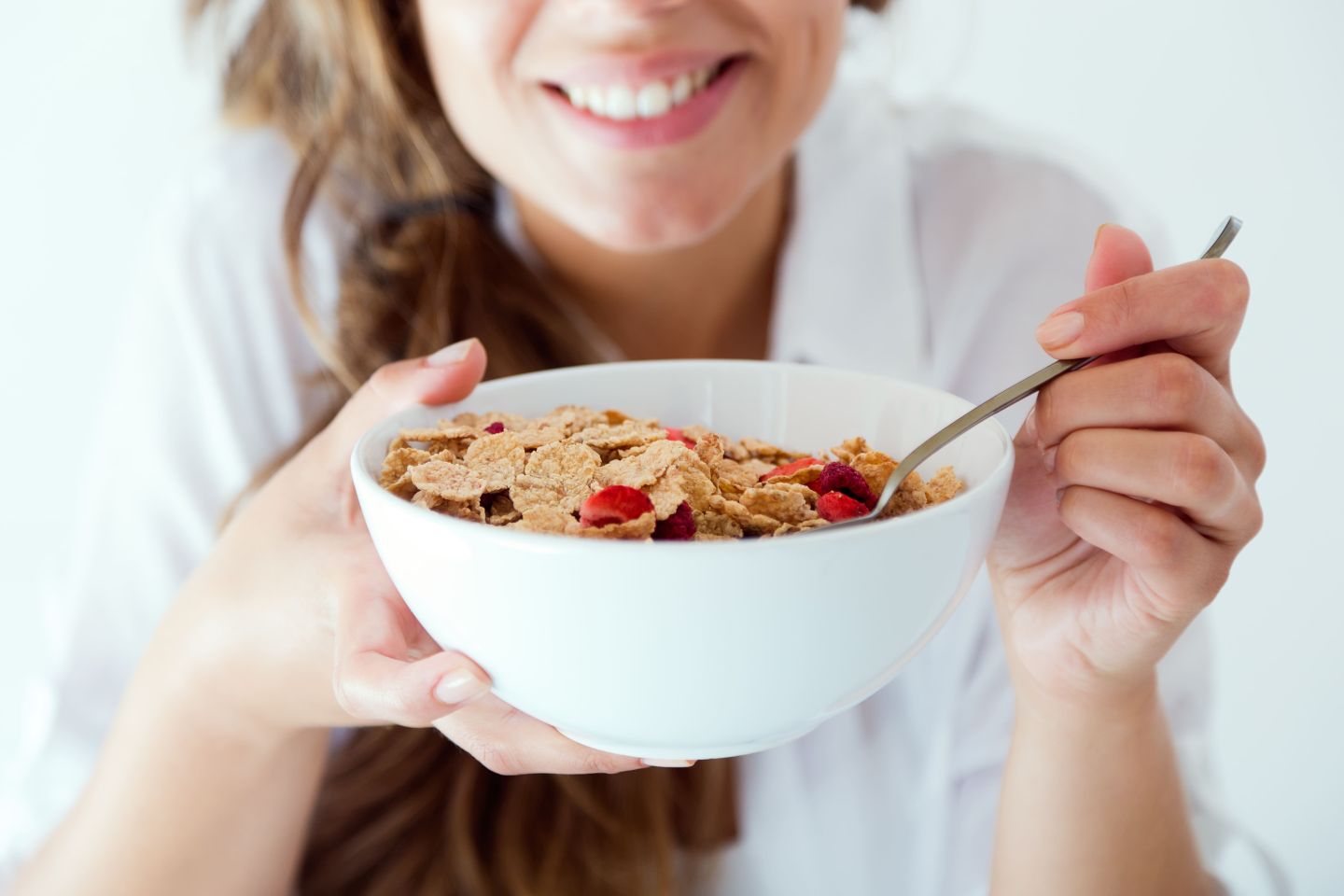
For example, a 25-year-old moderately active woman weighing 65 kilograms and height 165 centimeters should consume 2351 kcal per day. This means the overall nutrient ratio should be as follows: proteins 10–15% of total energy (~80 grams), carbohydrates around 50–60% of total energy (~320 grams), fats 30–35% of total energy (~90 grams).
Breakfast
Oatmeal (75g) cooked in water and milk with 10g of butter, 25g of walnuts, a banana (120g), an apple (70g), and cinnamon.
Lunch
100g of baked chicken breast with 75g of buckwheat and 220g of green salad (cucumbers, spinach, 15g of olive oil), 250ml of freshly squeezed orange juice.
Afternoon Snack (pre-workout)
2 slices of white bread with fruit jam, 2 kiwis.
Dinner (post-workout)
110g of oven-baked salmon with 75g of rice, 220g of green salad, and 20g of olive oil.
EXAMPLE MENU FOR MEN
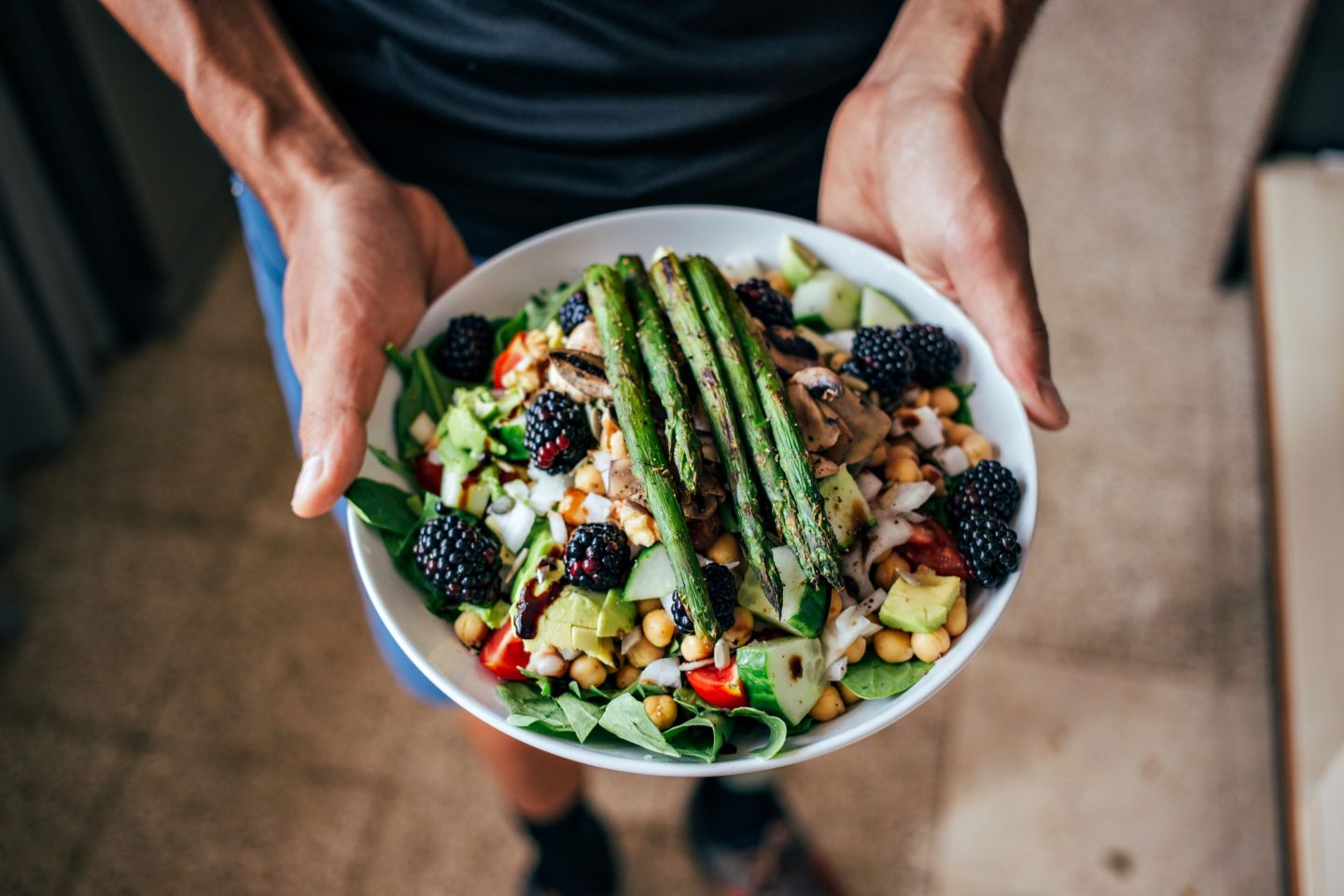
For a man weighing approximately 80 kilograms and engaging in 60-minute long workouts 2–3 times a week, the daily calorie intake should be around 2500 kcal, with approximately 95 grams of proteins, 350 grams of carbohydrates, and 95 grams of fats.
Breakfast
Oatmeal (75g) cooked in water and milk with 10g of butter, 35g of walnuts, a banana (120g), an apple (70g), and cinnamon.
Lunch
120g of baked chicken breast with 100g of buckwheat and 220g of green salad (cucumbers, spinach, 15g of olive oil), 250ml of freshly squeezed orange juice.
Afternoon Snack (pre-workout)
2 slices of white bread with fruit jam, 2 kiwis.
Dinner (post-workout)
120g of oven-baked salmon with 100g of rice, 220g of green salad, and 20g of olive oil.
Eat plenty of carbs before working out
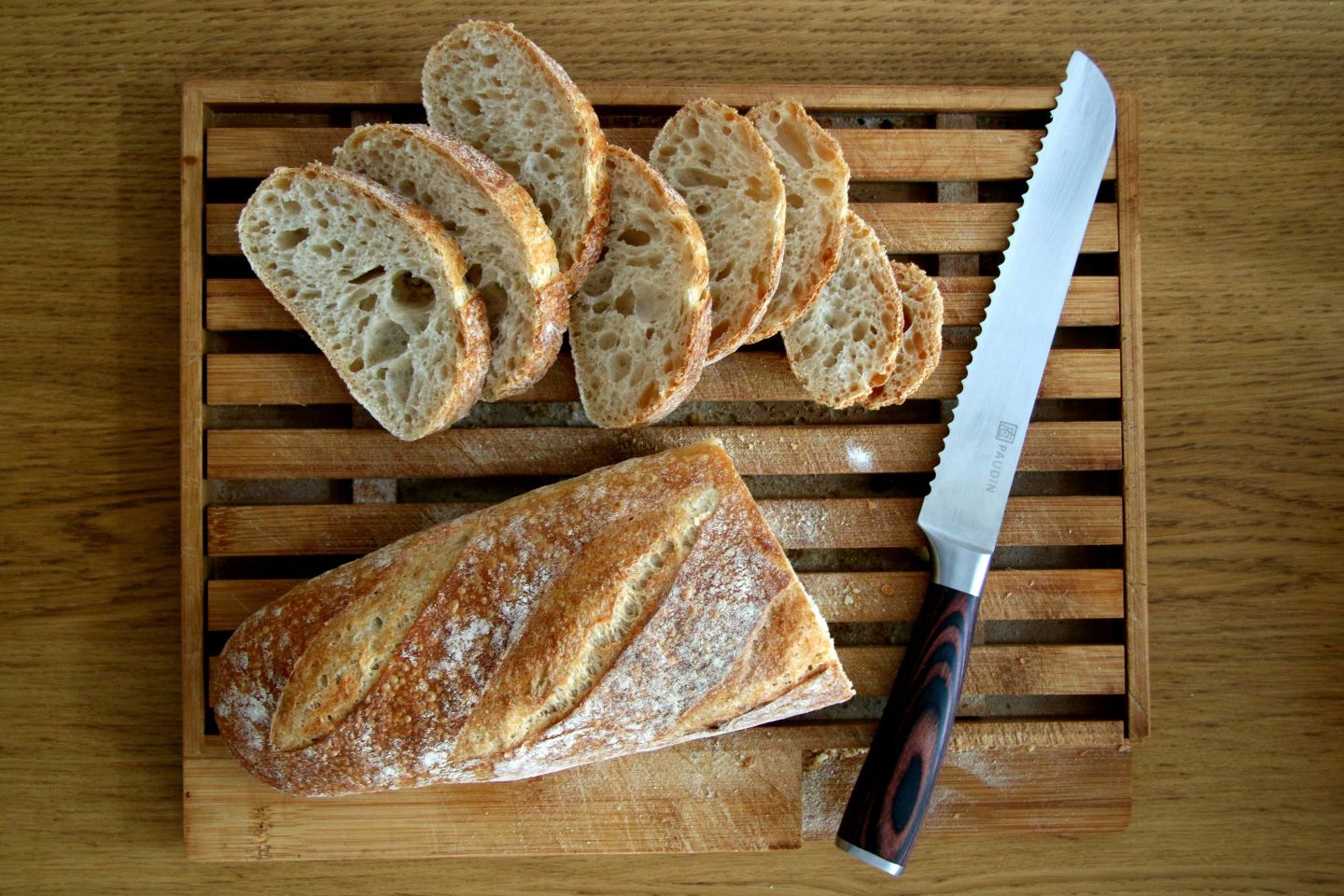
Running, like swimming, skiing, and cycling, is considered an aerobic physical activity where the body uses glucose as an energy source. Therefore, it is important to pay attention to regular carbohydrate intake to provide the body with the necessary energy.
It is important to include complex carbohydrates in your diet because the body can use them for a longer period. Complex carbohydrates include products rich in fiber such as whole grains, potatoes, buckwheat, quinoa, and flour products. To avoid rapid absorption of glucose in the digestive tract, preference should be given to complex carbohydrate-rich foods with a high fiber content: whole grain products such as whole wheat, oats, barley, buckwheat, brown rice, whole grain pasta, bulgur, quinoa.
Whole grain products should be included in every main meal – breakfast, lunch, and dinner. Whole grain products are a source of complex carbohydrates, as well as vitamins and minerals. They are rich in B-group vitamins and magnesium, substances that play an essential role in both muscle contraction and energy production processes. A meal rich in whole grain products should be consumed approximately three to four hours before a workout. However, if there is only an hour left before the workout, it is better to avoid high-fiber foods as fiber can burden the digestive tract and may cause discomfort during exercise, negatively affecting workout effectiveness and results.
Immediately before workouts, meals high in fat or protein should be avoided as these nutrients slow down the digestion process. A meal three to four hours before a workout could look like this: whole grain bulgur with lightly fried chicken breast, fresh salads, and a teaspoon of olive oil. But for a snack an hour before a workout, it’s better to choose a banana, oatmeal, toast with peanut butter, or jam. After workouts, it is advisable to include whole grain products in your diet to replenish glycogen stores in the body.
AFTER PHYSICAL EXERTION – INTAKE OF PROTEINS
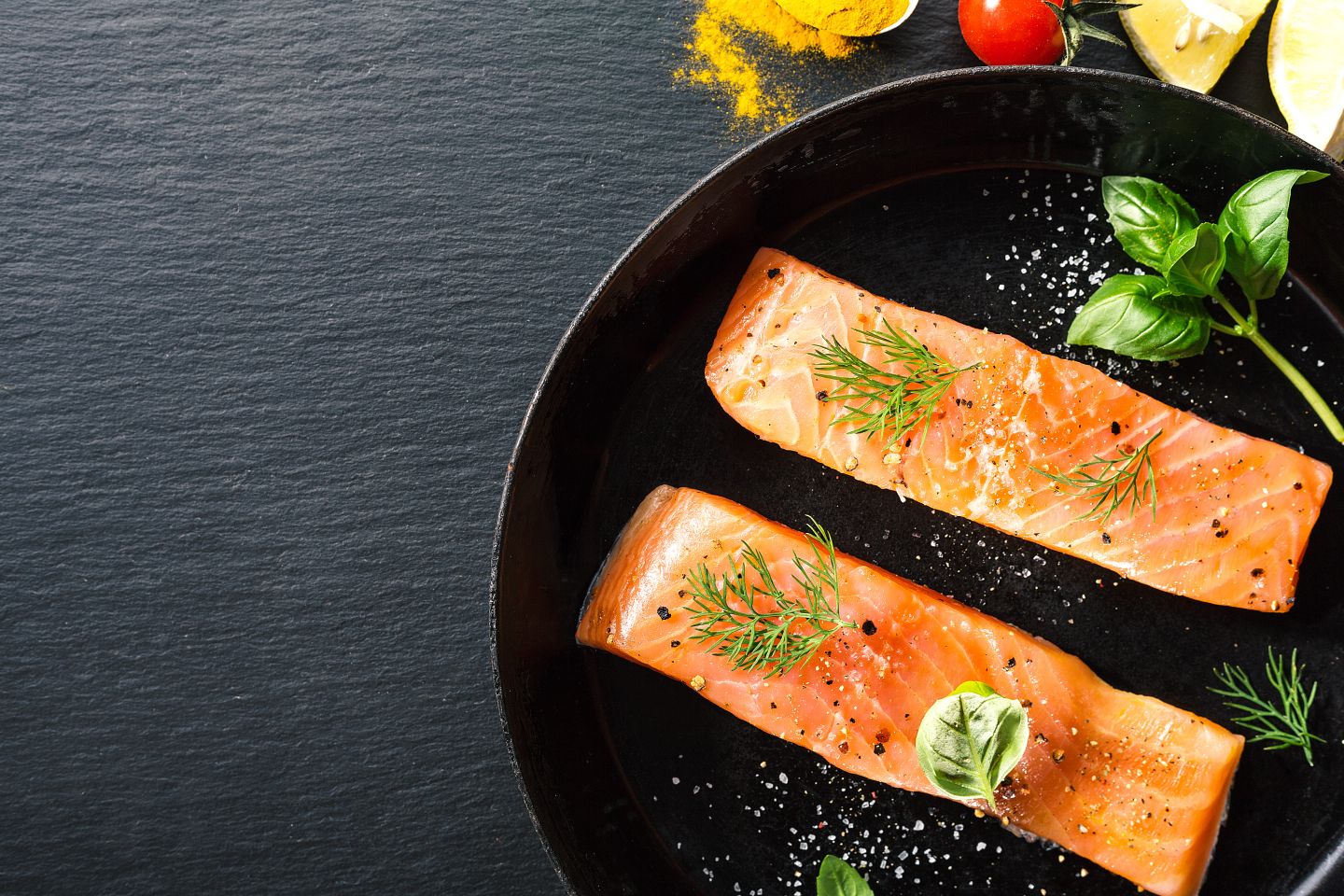
After workouts, it is important not to forget about protein-rich foods, so it is essential to choose products rich in proteins. Assuming that approximately 1 gram of protein should be consumed per kilogram of body weight during the day, this amount can be consumed during the day by including foods such as meat, fish, seafood, eggs, dairy products (cottage cheese, cheese), legumes, nuts, and seeds in your diet.
Protein content in foods (per 100 grams):
- chicken breast – 30 grams,
- pork fillet – 26 grams,
- fish – 20 grams,
- eggs – 24 grams,
- nuts – 20 grams,
- cottage cheese 14–22 grams,
- beans – 21 grams,
- oats – 11 grams.
Considering the protein content in food products, consuming this amount of protein during the day is not particularly difficult. Therefore, for people who regularly (twice a week) engage in running, it is not necessary to additionally consume specialized protein shakes or other dietary supplements designed for athletes.
IF YOU RUN, DRINK WATER REGULARLY!
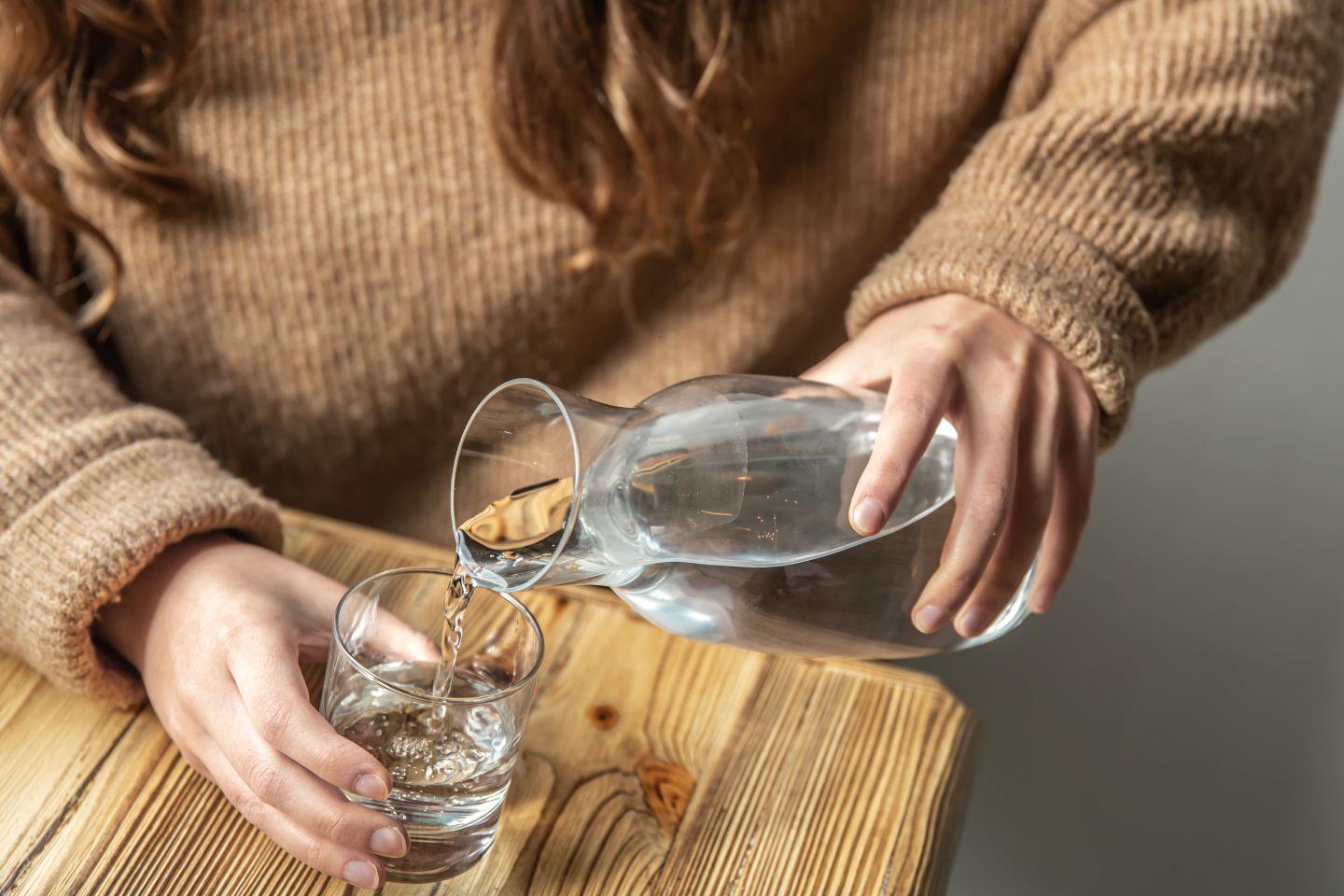
Another very important aspect to remember is hydration or adequate fluid intake. During physical activity, the body’s metabolism accelerates, causing the body to lose fluids. There is no need to wait until you feel thirsty. Water should be consumed before, during, and after exercise.
A good indicator of body hydration is the color of urine. If it is light or pale yellow, everything is fine, but if the urine is dark yellow, it means that the body lacks fluids.
Recommendations for fluid intake during the day:
- before exercise: drink about 400–600 ml of water or sports drink 2–3 hours before exercise;
- during exercise: drink 150–350 ml of fluid every 15–20 minutes depending on the intensity of the exercise, external conditions, and your endurance;
- after exercise: drink about 20–50% of the actual weight loss (it is advisable to weigh yourself before and after exercise to see the weight loss) in the first 6 hours after exercise.
Be active, alert, and healthy!




